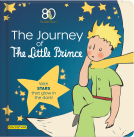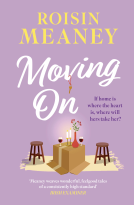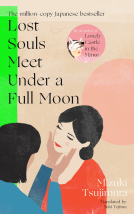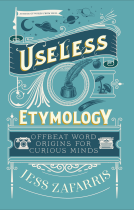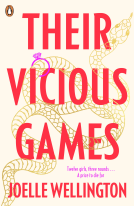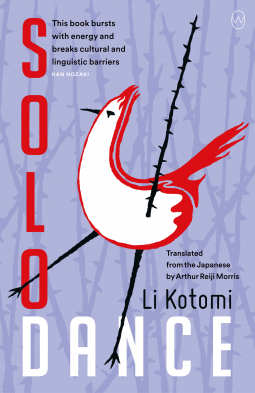
Solo Dance
by Li Kotomi
This title was previously available on NetGalley and is now archived.
Send NetGalley books directly to your Kindle or Kindle app
1
To read on a Kindle or Kindle app, please add kindle@netgalley.com as an approved email address to receive files in your Amazon account. Click here for step-by-step instructions.
2
Also find your Kindle email address within your Amazon account, and enter it here.
Pub Date 24 May 2022 | Archive Date 24 May 2022
Talking about this book? Use #SoloDance #NetGalley. More hashtag tips!
Description
A powerful novel about the LGBTQ rights movement and gay love in Japan and Taiwan, from the most important queer voice of East Asia's millennial generation.
Cho Norie, twenty-seven and originally from Taiwan, is working an office job in Tokyo. While her colleagues worry about the economy, life-insurance policies, marriage, and children, she is forced to keep her unconventional life hidden—including her sexuality and the violent attack that prompted her move to Japan. There is also her unusual fascination with death: she knows from personal experience how devastating death can be, but for her it is also creative fuel. Solo Dance depicts the painful coming of age of a gay person in Taiwan and corporate Japan. This striking debut is an intimate and powerful account of a search for hope after trauma.
Advance Praise
Praise for Li Kotomi
“With her powerful voice, Kotomi blows a fresh, new breeze into the often introverted world of contemporary Japanese literature.” —Japanese Ministry of Education, Culture, Sports, Science and Technology
Praise for Solo Dance
“It takes only a moment for the idea of death to spark in a heart pushed to its limits. All that remains is that spark and the deep breathing of our narrator who has had to live in the dark. The vicious pain that squirms beautifully at the heart of this novel holds an incredible power, perhaps becoming a salvation for the reader.” —Sayaka Murata, author of Convenience Store Woman
"In Li Kotomi’s empathetic novel Solo Dance, a young woman struggles to find her place in a world that is hostile to her sexual identity. A moving character study about the consequences of homophobia, and the resilience that’s required to survive it." —Foreword Reviews
“This book is carried by the literary traditions which the author has taken into her very being, along with an energy fostered by the breaking of cultural and linguistic barriers.” —Kan Nozaki
“In an era where everyone is perhaps too connected, we are forced to consider the importance of the solitude, not loneliness, that is depicted in this novel.” —Alisa Iwakawa, Gunzo
“Her knowledge of Taiwanese, Chinese, and Japanese literature, as well as the inevitability of her becoming a writer is evident in her work, and I look forward to her future career.” —Masaaki Takeda, Shunkan Shincho
“A striking debut from a young Taiwanese author, which follows the struggles and loneliness of a young woman, from her secret high-school love, to the incident that drastically changes the course of her life, and her eventual journey and escape to Japan.” —Kodansha, Japanese publisher
Marketing Plan
Advance reader and digital reader copies
ABA White Box Mailing
National TV, radio, print, and online review campaign
Book club discussion guide
Bookstore co-op available
Excerpt placement
Social media campaign
Giveaways: Goodreads & Shelf Awareness
Available Editions
| EDITION | Other Format |
| ISBN | 9781642861143 |
| PRICE | US$17.99 (USD) |
| PAGES | 192 |
Featured Reviews
Thank you, World Editions, for allowing me to read Solo Dance early!
Moving, interesting and powerful, Solo Dance is a novel I won't forget easily!
 Reviewer 893329
Reviewer 893329
🏳️🌈🇹🇼🇯🇵Book Review
Solo Dance is the poignant story of a Taiwanese lesbian who has immigrated to a new life in Japan.
Cho Norie is a twenty-seven year old lesbian struggling to find her place in the world in modern day Japan. Norie’s life is told through present day experiences of her work life and flashbacks and diary entries from her youth in Taiwan. The book explores stigma, love, homophobia and mental health and the idea of how to heal and move on from trauma.
Firstly, I would strongly suggest checking a full list of content warnings on StoryGraph as this book mostly deals with strong mental health issues. Secondly, This book was written with beautiful metaphors and was absolutely lyrical referencing many great Chinese, Japanese and Taiwanese authors, especially Qiu Miaojin. The contrast of Eastern and Western acceptance of the LGBT community was enlightening, as Norie’s experience was compared with others. As was the exploration of migration as escape or restart from a previous life. Norie felt like a well rounded character who you felt you could empathise with often as she felt like life was beyond her control.
Overall, I applaud Li Kotomi’s frank addressing of taboo topics and I feel she captured the mindset of the protagonist and her suffering of mental health and trauma quite well.
A great read for fans of Qiu Miaojin’s Notes on a Crocodile or Sayaka Murata. More foreign translated works are well needed from the LGBT community abroad.
Thank you to @netgalley and World Editions for my first ARC. “Solo Dance” by Li Kotomi is released 24 May.
This was a quick but full-on read. It is about a queer Taiwanese girl that moves to Japan after a series of events in her life. It is well written and translated.
The topics treated in this book are quite heavy, as the main character suffers from depression. The subject could have been explored in-depth and the whole book flies by quite superficially for my liking. This might have been intentional, though. Just not what I was going after.
Even though the themes are not explored in-depth, be aware of the TW: homophobia, self-harm, suicidal ideation, sexual and physical assault.
However, it is a powerful one not only about mental health but also about identity, sexuality and culture as well as acceptance. I did enjoy the ending.
 Kerry L, Reviewer
Kerry L, Reviewer
Thanks to NetGalley and World Editions for an ARC in exchange for an honest review.
Solo Dance is a brief but beautiful look into an extraordinarily lonely life of a semi-closeted Taiwanese woman. The prose is very lyrical, but is also direct and to-the-point. Norie's loneliness and self-hatred is intense and radiates off the page, especially in the moments she feels othered—both by herself and the people she is around. In many ways, this is an intense novel, and I felt Norie's suffering very acutely.
I didn't realize just how focused on queer trauma this book is, nor did I realize how bleak it is. The ending, I thought, was bittersweet and hopeful, and I liked its openhandedness, but after learning about each event in Norie's life I found myself wondering just how much more life could put her through the ringer.
This is a genuinely beautiful book, and I've walked away with a lot of things to think about, but I do have to say that content warnings for death, suicide, suicidal ideation, rape, and homophobia are very important to keep in mind, since these things are presented very bluntly. It's heavy despite its short length, but extremely well done and powerful.
 Reviewer 958382
Reviewer 958382
Solo Dance is a story about a queer Taiwanese woman who moves to Japan following some critical events in her life up to that point. It's quite short so I read it in one sitting and would recommend that experience as it functions more as a novella, as you get the full experience of the main character and her dealings with the side characters (which was my favourite bit of this book). The book does contain some bleak themes which may colour your experience of the story (CW: homophobia, self harm, suicidal ideation, SA, physical assault). I enjoyed the different characters that came in and out of the main character's life and felt like they added the colour and motivations for a lot of what took place in the book, although felt like some of that characterisation could have been left open-ended as the writing (or possibly the translation) had a habit of explaining things a bit too much, and I generally prefer things to be left open to interpretation. I would actually say the side characters are what I enjoyed reading about the most - and it was a few hours of getting pleasantly lost in their worlds and minds.
I received an ARC from Netgalley in exchange for an honest review.
Thank you to NetGalley for providing me with this title in exchange for an honest review.
"The world has moved on, and I'm the only one standing still."
This novel was the most beautiful book I have read in a while—if not ever. Li Kotomi's prose is so light and lyrical and, at the same time, manages to convey the feeling of being inside our main character's head. Solo Dance is a short novel about Norie, a taiwanese girl living in Japan and grappling with her past as she attempts to make a new life for herself. At times in the novel it feels as though everyone and everything is moving quickly, leaving her behind—the themes of loneliness and death are prevalent throughout the book and masterfully tied into her identity. Short but impactful, I'm sure this novel will impact so many and leave them as breathless and at loss for words as it left me.
Reading Solo Dance makes me wonder how much of it is fiction and whether it mirrors the author’s own upbringing. Our protagonist Norie is also born in Taiwan, and through the literary works of Japan’s Osamu Dazai and Taiwan’s Qui Maiojin she gets drawn into the world of literary.
To reinvent herself, she studies Japanese, makes the move and ends up working a typical 9-5 office job in the heart of Tokyo. But underneath her silent and cold demeanour, Norie is suffering. Suffering from loneliness in a big city, suffering from leading a double life, suffering from not being able to simply being herself. Yes Norie is gay. Unfortunately being gay in a country like Taiwan and even Japan is not the norm. The only place where she can even be herself just the slightest is late at night in the bustling bars and clubs of Shinjuku’s Ni-Chrome quarter.
Norie — she’s just trying to stay afloat. From her cold and professional demeanour, everyone thinks she’s just a hard worker and doesn’t involve herself in workplace gossip. But really Norie doesn’t know how. How would she begin to make friends and share her feelings when she’s been wearing a mask this whole entire time. What’s the point of pretending, when she would be lying to everyone? She would rather just lay low. She does date women, but because she can’t be herself in everyday life, it just never works out.
There’s lots of references to Dazai and Maiojin’s work and as they revolve around death and suicide. Norie seems to have the same obsession and internally battles within herself that she can’t see a future where she grows old. I found it incredibly heartbreaking.
On a lighter note, we get to explore the friendships she has — Norie is actually quite loyal and willing to help. It’s funny cause the ones who need the most help are usually the ones taking charge and helping everyone else first. With her therapist, we watch her journey as he encourages her to keep a journal to really finding out the root of her trauma, and asking Norie to confront it.
Honestly, this is such a depressing story. I couldn’t see any hope at all. The story could have ended either way and I would have been content. I just felt so much for Norie, and how she knew she needed help and even with professional help there’s only so much a person can take. It was incredibly relatable to me in certain ways that I just wanted to cry. I sometimes wonder if some day I will make the same choice as Norie, and whether life will work out for me or not.
I honestly don’t even want to go into details with this one and spoil anything. It’s a must read. The writing is incredible. The story tackles so many different issues from the PTSD of a traumatic experience, to finding yourself again, to rekindling old friendships and forming new ones, but really I think this one is simply about finding a reason to live. Whether Norie finishes this dance of a life on her own, you’ll have to read this one to find out.
Absolutely loved this book. The prose was beautiful to read and I really enjoyed this insight and perspective of being a Lesbian in East Asian countries. I felt the ending was only sightly rushed, but it might be because I wanted to keep on reading it forever! There does need to be content warnings for themes such as attempted suicide and rape, but I feel Li Kotomi handled both of these themes in such a respectful way. I really hope this book does well and I can't wait to promote this when it publishes!
 Teddy S, Librarian
Teddy S, Librarian
cw for suicidal ideation, suicide attempt, rape, mental illness
Despite having fewer than 200 pages, this novel packs a punch. We follow our main character in two timelines of her life, slowly unraveling why her older self fled Taiwan for Japan and why she feels and acts the way she does. Despite the darkness that Chō faces and endures, Li portrays her with such empathy and humanity that you can't help but be drawn to her and become invested in her story. I also really, really loved to read a story about a queer East Asian character and an exploration about how they fit within their culture; it's a gap in my experience of queer lit that I'm trying to fill, and this was a spectacular little book to experience.
I'd highly recommend this book, though I would urge potential readers to assess trigger warnings for it. Definitely will be recommending my library purchase a copy when it's released.
Solo Dance follows the story of Cho Norie, who left her life and past behind in Taiwan and it's now living in Tokyo. It's a coming of age book that deals with heavy themes like death, lesbophobia, rape, and suicide. It was really painful reading her story and how it molded her; even as she tried to erase what happened to her in Taiwan by moving and changing her name/identity, everything was still there deep in her. She tried to share her pain with her girlfriend, but she felt more ostracized instead of being comforted; she tried to help her friend that was being stalked by an ex and ended up with everything about her being exposed, and with that she was outed to her coworkers, and it all led to her suicide attempt - phew, she didn't catch a break! It ends on a hopeful note, but I really wish we could see more of her after what happened in Australia.
While well-written, I think the crux of the matter is that this book is not for me. I requested it because it fits my interests; I'm an LGBTQ+ woman who has lived in Taiwan and studies Chinese and Japanese, so I thought perhaps this book would remind me of me time abroad and help me learn more about the lives of the LGBTQ+ community in these countries. Unfortunately, while the writing itself was good (kudos to both author and translator), the book itself was a bit of a slog. The subject material is incredibly heavy, and the main character's depression and feeling of being trapped in herself also narrows the scope of the book; as the reader, you rarely get much of a sense of her setting or the people around her. While that may be intentional, it made for a claustrophobic reading experience, and one that ultimately made the book a little disappointing to me.
That being said, I would recommend people interested in the topic to give it a read (but check out the trigger warnings first). It's a quick read, and I do enjoy reading the unique perspective of a Taiwanese author who, like her character, moved to Japan and writes in Japanese. It's not a bad book, but just not the type of book that I would necessarily seek out in the future.
This book was a rollercoaster from start to finish and I was not prepared for it! One woman's quest to discover her identity, sexuality and place in the world. I haven't read any other LGBT+ books from an Asian background which was really refreshing.
One event changes this characters life forever and sets in motion an almost manic domino effect of depression, anxiety, loss and an almost overwhelming need to constantly run and escape their realty. To change country, name, university, work, friends, absolutely everything to try and escape the one thing they can't which is their memories and nightmares.
The pace doesn't let up even when there is overwhelming depression and anxiety you as a reader still feel that tension and mixture of emotions the character is giving us until finally your standing on a literal cliff edge alongside them.
It's a powerful little read about culture, identity, mental health, sexuality, belonging and ultimately acceptance.
Solo dance
🌟🌟🌟🌟
It's written by Li kotomi. Honestly LGBTIQ+ tag made me request the book from netgallary. The book it's about a female protagonist life and how she concluded her end as dead very early in her life . Her realization of her sexuality , her falling in depression, falling in love again , facing tragedy in her life, breaking up ,leaving her country practically running away form her past , making a new life but again crashing it like an illusion, then finally deciding dead is her only way to free herself and did she achieved it to know that you have to read the book.
To me it's a very enjoyable book the writing it's very simple easy to understand thanks to Arthur Reiji Morris's amazing translation.
Yingmei journey of life is like a road full of hole .she keeps falling one to another never finding a smooth surface. Also the book filled with reference both japanese and Taiwan fiction literature as the author is born in taiwan and lives in japanese and write in japanese . specially osamu dazai and qiu miaojin and murakami. Also yingmei relating herself with miaojin so much. I also got to read about japan's queer club , community ,social networking site and society around queer people and all. Honestly I don't have very much to say I witness a journey of zhao yingmei and I like it.
One thing the last chapters felt little rush but ok I still liked , pretty good book and it hooked you on and make you cheer for yimgmei to overcome her fears and past and live a peaceful life and starts writing again. I love love the book cover kudos to design team
#LifeCeremony #NetGalley #japaneseliterature #solodance
Loved it!!
Thanks to Netgalley and the publishers for letting me access an advance copy of this book in exchange for my feedback.
 Clare H, Educator
Clare H, Educator
I found this book utterly engrossing. It is beautifully written and is not afraid to tackle issues such as homophobia, rape, suicide etc.
I felt a lot of sadness throughout the book for the protagonist. She has a challenging life and the book demonstrates the stigma that people hold against survivors of rape and members of the LGBTI+ community. As a citizen of a fairly progressive society, this book really provoked me to consider the struggles of those who comes from contrasting societies and cultures.
I enjoyed the references to various Chinese and Japanese authors and felt that they worked well to convey how the narrator was thinking.
I would have given the book five stars but the ending was quite convenient, considering how the plot had progressed up until then. It seemed highly opportune that what happened happened. I know I sound ambiguous but I don't want to spoil the ending on anyone.
 Oldřiška S, Reviewer
Oldřiška S, Reviewer
I enjoyed my time with this book. It's not a happy book by any stretch of the imagination, nor it is an action-packed, thrilling read. It is a sad, introspective story about a woman, her experience as a lesbian in the 'queer desert' of Japan, and her dealing with the trauma of being raped for being a lesbian in her homeland Taiwan. There are two main timelines interwoven: Norie's past told in the first person, snippets of her childhood and growing up in Taiwan, and then her contemporary life in Japan told in the third person. And on top of it her neverending and evergrowing fascination with death, suicide, and her lack of want to keep on living. (Content might be clear from the book description but I include content warnings at the end of my review for anyone who might need them.)
The main thing that I really loved in this book is the main character's appreciation of other literary works from East Asia and how thoughtfully were they chosen and inserted into the narrative. It didn't feel like a reference-dumping but as a true interest of Norie. Overall, the language in the book is poetic and even though it deals with hard topics, it flows beautifully. There was no place where I felt stuck or felt that I don't want to keep reading.
My only issue is with the ending that somehow didn't affect me in any way. I don't mind open endings or unsatisfying endings when they are the intention of the author, but usually, I get some type of feelings about the endings, here the book just ended on a weird-ish note and I didn't know what to think or feel about it.
Overall though, I liked this book enough, and for people who enjoy reading reflective books that are mainly about things happening in the character's head, dissecting their thoughts and feelings (especially concerning death), this might be for you. I had similar feelings while reading as I had with A Tale for the Time Being or Convenience Store Woman. If you enjoyed those two, you want to pick this one up.
CW: suicide, death, grief, rape as a hate crime, lesbophobia (internal and external) self-harm, doxing/outing
Solo Dance is a novel about a Taiwanese lesbian in Japan, struggling to find hope in her life whilst working an office job and dealing with mental health issues. The protagonist is in her late twenties, reinvented and renamed herself when she moved to Japan after university in Taiwan, and lives a double life: in the office, everyone is talking about marriage and children and their position in the company, whereas she also goes to gay clubs and meets other lesbians online. The narrative moves between her present and her past as she searches for belonging, thinks about queer literature, and faces everyday homophobia.
Translated from Japanese, this short novel is a sad one, occasionally bittersweet, with the protagonist's trauma and mental health playing a crucial part in the book, and sexual assault and suicide part of the narrative. Despite this, there's also beauty, both that she finds in the world and in her interests, especially in her connection with literature. I hadn't heard of most of the books and writers referenced in Solo Dance, so I'm excited to explore those too, especially Qiu Miaojin who plays a vital part in the protagonist's construction of herself. The experiences of queer people in different countries is an underlying theme, explored through the protagonist's experiences and her travels, and the people she meets, and I found this a powerful part of the book.
This is no light read, with a pretty depressing plot and tackling a lot of serious issues, but I found it engrossing and read it quickly, especially drawn in by the protagonist's use of literature to explore self and culture and the exploration of queer life for an outsider in a country.
This book was so good, it was so well written with well developed charcaters and a beautiful storyline that was heartbreaking. This book deals with hard hitting and emotive issues such as suicide, rape, homophobia and suicidal tendencies, however they are all done with sensitivity. I devoured this book in one sitting and although it wont be for everyone, I really enjoyed it.
“No matter how far she traced the threads of memory, she couldn’t place the exact moment when that vast darkness had seeped over her, nor identify its source.”
Li Kotomi’s Solo Dance (translated by Arthur Reiji Morris) is a short, sad novel about a lesbian woman living in Japan, struggling with depression, thoughts of suicide and her sexuality because of her traumatic past in Taiwan. It’s a sad, tough novel at times, but definitely worth it for the cultural insights and queer literary references, specially to Notes of a Crocodile by Qiu Miaojin. I’d be interested in reading more from this Author.
Solo Dance was a short but intense read which deals with some dark themes including homophobia, rape and suicide. As such, this piece won't be for everyone, but I found it engaging and thought-provoking, as well as interesting in the way it looked at evolving LGBT acceptance (or not) in Taiwan and Japan. I found it bleak, but not depressing, and I enjoyed all the literary and cultural references throughout. Reactions to this book will vary, I think, but if the darker subject matter doesn't put you off, I think you will find this book as worthwhile read.
 Reviewer 876149
Reviewer 876149
In 2021, Li Kotomi’s most recent book won Japan’s prestigious Akutagawa Prize, and now her debut Solo Dance’s been made available in English. Born in Taiwan, Li lives in Japan and writes in Japanese, although her work straddles aspects of Japanese and Taiwanese culture, reflecting her fascination with both countries’ literary history. And Solo Dance’s filled with references to Japanese and Taiwanese fiction, in particular the work of Osamu Dazai and Qiu Maiojin. In many ways Solo Dance reads like a homage to Qiu Miaojin’s haunting, now-classic, depictions of her existence as a Taiwanese lesbian - although the intense feelings of estrangement documented by Li’s central character also conjure up Dazai’s solitary, isolated outsiders.
Li’s novel, although it’s closer in scale to a novella, isn’t strictly autobiographical but draws extensively on her personal experiences, and many features of her main character’s life history line up with Li’s own. Solo Dance’s told from the perspective of Zhao Yingmei who’s reinvented herself, leaving her home in Taiwan for Japan, and changing her name to Cho Norie. Now 27, Cho works in a prestigious, mainstream corporation based in Tokyo but despite her outwardly enviable lifestyle, she’s struggling to stay afloat. As her story unfolds Li gradually reveals fragments of Cho’s past in Taiwan, and the lingering impact of the brutal, homophobic attack that led to her flight.
Woven into Cho’s narrative are intriguing glimpses of the evolving gay and lesbian cultures of Taiwan and Japan, from local online forums to Taiwan’s Pride parades and Shinjuku’s legendary Ni-Chōme quarter. Its thriving clubs and bars an oasis in Japan’s "queer desert". Closeted at work, and at home in Taiwan, it’s only here, in the company of other lesbians, that Cho’s able to express herself but even so there’s some part of her that remains in the shadows. Like Qiu Miaojin, Li deals with painful territory, violence, trauma, loss and alienation, but she also holds out the possibility of community and reconciliation. Like so many first novels, this often seemed overly packed, and sometimes too compressed, there are even moments that come a little too close to the realm of melodrama. The final section’s slightly awkwardly structured and viewed from some angles the ending’s not entirely credible but from another it’s an interesting reworking of concepts of fate and connection drawn from traditional Taiwanese belief systems. This is by no means a perfect piece but at its strongest I found it incredibly moving, with passages of beautifully-composed prose, and flashes of powerful imagery. Arthur Reiji Morris’s translation’s fluid and convincing.


